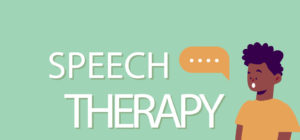Have you ever been in the middle of a sentence and just blanked on a word you know you know? You’re not alone! Most people experience moments where the perfect word is just out of reach—something language scientists call a “tip-of-the-tongue” moment. But why does this happen, and when should you be concerned if word-finding difficulties occur too often?
How Word-Finding Works in the Brain
Producing even a single word is actually a multi-step process. Here’s a quick breakdown of what happens in our minds every time we speak:
- Meaning Identification: We think of what we want to say.
- Word Selection: Our brain searches the “mental lexicon”—our internal vocabulary storage—for the right word.
- Sound Retrieval: We retrieve the sound pattern associated with the chosen word.
- Speech Execution: Finally, we engage our muscles to articulate the word.
Word-finding issues can crop up in any of these steps, but most commonly, it’s the sound retrieval stage that’s tricky. This is why we often feel like we know the word but just can’t “get it out”—we can sense its meaning and even its first letter, but the full word remains elusive.
Why We Experience “Tip-of-the-Tongue” Moments
In those “tip-of-the-tongue” moments, many of us default to describing the word, like saying, “It’s that thing you use to hammer a nail!” or “It starts with an H!” These moments are incredibly common and become a bit more frequent as we age. But they’re usually just a natural part of our speech process and not a reason for concern.
Common Triggers for Word-Finding Challenges
Certain factors can increase our likelihood of experiencing word-finding difficulties.
- Stressful Situations: Studies show that we’re more likely to lose words when we’re anxious, especially in high-stakes situations like job interviews.
- Less Common Words: Words that we use less frequently often have weaker connections in our memory, making them harder to retrieve on demand.
- Names and Places: These are some of the trickiest words to retrieve, even when we know the person or place well.
When Word-Finding Might Signal a Larger Issue
Occasional word-finding issues are usually no cause for worry. However, if these difficulties increase in frequency or start affecting a wide range of everyday words, it might indicate a more serious condition like anomia or anomic aphasia.
Anomic aphasia is a language disorder that can follow brain injuries, strokes, or neurological conditions such as dementia. For example, the actor Bruce Willis was recently diagnosed with primary progressive aphasia, a condition where word-finding difficulties are an early symptom rather than memory loss. Primary progressive aphasia is often associated with degenerative brain conditions such as frontotemporal dementia or Alzheimer’s disease.
If you’re concerned about persistent word-finding issues, give us a call, we can assess which stage of the word-finding process may be challenging for you and recommend effective exercises to strengthen these skills.




